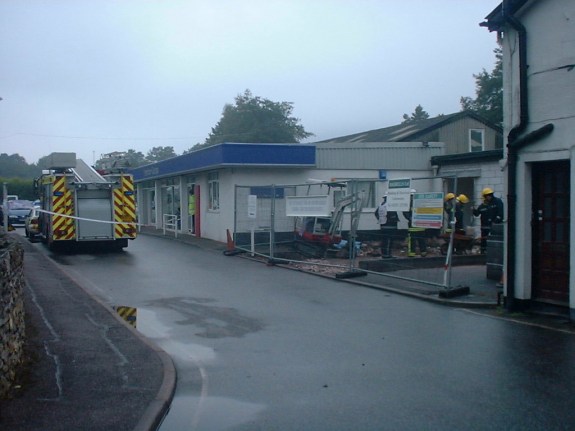
GAS SAFETY WARNINGS
There are many rules for safe working on gas systems. Do not undertake any work unless you are fully competent. Even some CORGI registered tradesmen work to low standards - witness the domestic gas back-boiler 'serviced' by British Gas and left in a dangerous condition with five gas leaks - this happened to a friend of mine!
There are so many stories about sharp practice by British Gas that the only safe rule seems to be never to believe anything they say - many newspaper articles have been written about how (for example) they condemn perfectly good and repairable boilers just because they want to sell you a new one for £1500 or more. Feigning non-availability of spare parts is a favourite ploy - in fact there are very few service parts that are not available, even for domestic boilers over 20 years old.
However, to emphasise the dangers of not knowing what you are doing, here are two of the most important pieces of safety advice relating to working on gas systems: there are many others by the way!
IN RESPECT OF DOMESTIC SYSTEMS (using mains gas) - if undertaking any soldering on gas pipes, the gas meter must be REMOVED from the building and both ends of the meter sealed with screw caps or rubber bungs to limit air ingress. The meter cupboard door should be propped open. These precautions are necessary because (if the meter is left in place) there is a risk that a gas-air mixture can be present within the meter - and this can be ignited by a flame passing down a pipe from the area being soldered. The resulting explosion within what is a strong steel box can be so severe that it can apparently demolish part of a brick built wall. When the meter is reconnected it should be bled to remove any traces of air, and pipe work should be well bled before attempting to light any appliance. Of course, a flame may pass down a gas pipe when it is being soldered but if the 'meter' end of the pipe is open there can be no explosion of a gas/air mixture within a confined space. In older properties, gas meters may be located within the dwelling - maybe under the stairs. In these cases, be aware that a flame might (in theory at least) leap from the open end of the pipe (the pipe will be open because you will have safely removed the meter to outdoors) and set fire to papers or wood under the stairs. You can never be too careful when working with gas in buildings.
IN RESPECT OF LPG (butane or propane) SYSTEMS (in caravans and elsewhere) - NEVER install or connect a gas cylinder unless it is in the correct upright position with the valve at the top. If the cylinder is connected when it is lying on the ground, liquid gas may pass through the regulator and when it reaches the gas pipes will expand to create a pressure many times normal. If any appliance is then lit, the resulting flames will be vastly larger than expected. There is a famous (apocryphal?) story about a man who connected a gas cylinder incorrectly to his new £30,000 motor camper. He then lit the cooker and the flames blew him out of the door and set fire to the vehicle. His insurance company is said to have paid up - but he was lucky to escape with his life. When dealing with gas, follow the rules - there is a good reason for them!
Unfortunately there is very little readily available detailed guidance because secretive self-serving trade organisations like CORGI (now GAS SAFE) consider they are doing a public service by denying information to the public. There is a great deal of hypocrisy about gas spares and servicing - many companies (and including caravan dealers) refuse to supply gas spares to 'the public' yet B&Q, Toolstore and similar chainstores will happily sell you every possible component for installing a new gas fire or boiler in your home - and then they tell you that all work should only be done by CORGI/GAS SAFE registered persons. Other companies say that the law only prohibits non-CORGI personnel from undertaking gas work as a business.
All of this raises the interesting question of how young people are supposed to learn anything practical about DIY if they are denied most of the information and experience required, and on the pretext of Health and Safety. Personally, I would have practical DIY taught in all schools and I would have all information freely available - but that is another story!
And finally - don't cut open old underground petrol storage tanks with an angle grinder (disc cutter) even if they have been disused for over 15 years. This is apparently what two workmen tried to do early one morning in my home village. I was awakened by the explosion (so were many other people) and the two men were taken to hospital with burns after being doused with water. Some years earlier, another local man tried to make a garden bonfire incinerator out of an old 50 gallon oil drum - he too tried to cut the top off with an angle grinder, and he is unlikely to try the same procedure again.
The photo below (taken by the author and reproduced in the local paper on 14 Oct 2005) shows the Fire Service in attendance at Hamilton Garage Sidford an hour or so after the underground petrol tank exploded. According to one Fire Officer, the two builders concerned were taken to hospital "for minor treatment and to consider how best they might deal with the other two tanks on site". Building work was suspended whilst the HSE asked a few questions about supervision and training!

use your browser back button to return